
Los Angeles Mayor Karen Bass speaks at the Consulate of Mexico at the unveiling of an iconic image on the 30th anniversary of the 1994 march against Proposition 187. (Jacqueline García)
An emblematic photograph showing a sea of people, many of them holding Mexican flags, hangs in the Consulate of Mexico in Los Angeles as a reminder of the power of the immigrant community in California. The iconic image was unveiled Wednesday on the 30th anniversary of the October 16, 1994 march against Proposition 187.
Proposition 187 was a 1994 ballot initiative that sought to deny undocumented immigrants and their children access to healthcare, education, and other essential services. It also required state and local officials to report undocumented individuals to immigration authorities.
During a press conference held Wednesday in the Mexican Consulate, General Consul Carlos González Gutiérrez said he vividly remembers the march. He was serving as consul for Community Affairs and saw the streets of Los Angeles filled with people marching with their flags. Many of them were immigrants or allies of immigrants who rose to defend their dignity against the threat of Proposition 187.
“That experience deeply shaped my understanding of the strength and resilience that characterize Mexican and Latino immigrant communities,” said González Gutiérrez.
The Consul said the march also sent a strong message to the Mexican government. Three years after the march, the Mexican Congress amended nationality laws to allow Mexicans to hold dual or multiple nationalities.
“The bill was an explicit recognition that Mexican Americans, whose hearts span two nations, could indeed belong to both,” said Consul González Gutiérrez.
Leaders of the march reunite

Officials pose next to the photo depicting 1994 march against Prop 187. (Jacqueline García)
Key members of the march, including Los Angeles Mayor Karen Bass, former Speaker of the Assembly Fabian Nuñez, former Councilman Gil Cedillo, and Councilman Kevin de León, were present at the press conference.
Nuñez, who helped lead the march, said it was intimidating to realize how big and expensive the event could be, but none of the organizers backed down. The march successfully had more than 70,000 participants.
The march's impact was visible immediately, with the surge of immigrants becoming U.S. citizens and starting to vote. This is what helped California transform from a Republican moderate state to a liberal California that looks at the very wealthy and the very poor the same way, explained Nuñez.
“You have the same rights, the same respect and you have the same level of dignity, that’s what California is about” he added.
Nuñez emphasized that many immigrants come to the United States with the sole purpose of better opportunities, even if it takes sacrifice. Often, that sacrifice is their children.
Bass said that year, she was working as the executive director of the non-profit Community Coalition. She started organizing African Americans and Latinos to come together in South Los Angeles to participate in various activities to raise the voices of the voiceless. She said liberal California didn’t exist 30 years ago, and the organization started working with numerous high school students to teach them about history and unity.
“We participated in marches, we went to their high schools and mobilized so that everybody understood that it was, in my opinion, a human rights abuse that you would deny education and deny healthcare,” she said.
Despite Bass's current political and ethical differences with some of the march's leaders, she recognized the hard work veteran activists and politicians like Cedillo did to fight for immigrants' rights. She also applauded the work that, back then, newer leaders like Nuñez and De León did and who eventually launched their political careers successfully.
“It was exciting to see them step up and become leaders of a new movement,” she said. “So sometimes when you are facing a real negative situation, you fight against it, but also use that as an opportunity to turn it into something positive.”

Image unveiled at the Consulate of Mexico on the 30th anniversary of the 1994 march against Proposition 187. (Jacqueline García)
That positive fight helped California eventually become a democratic state. The state now addresses issues like immigration and looks for solutions instead of division. This has also helped the state be prepared when immigrants are attacked, as has happened in the past with former president Donald Trump.
“So when we did have the misfortune of having an anti-immigrant president, California was prepared to fight back… and we are going to work extremely hard so we don’t have that nightmare come back,” said Bass.
Getting out the vote
While Prop 187’s objective was to become an anti-Mexican initiative that sought to create division and fear among potential voters, in the end, it had the opposite effect. The march symbolized a profound awakening for the Mexican immigrant community and their US-born children. It marked the kick-off of a decades-long campaign to mobilize the Latino vote to transform California’s political and social landscape.
To the dismay of the immigrant community, Proposition 187 passed in November 1994. It was shortlived, however, since it only lasted a few days until a federal court judge issued an injunction barring its implementation, stating it violated the United States Constitution.

Los Angeles Mayor Karen Bass unveils an iconic image on the 30th anniversary of the 1994 march against Proposition 187. (Jacqueline García)
In 1999, a court-approved mediation ended years of legal and political debate over Proposition 187. ACLU stated in a release that the agreement confirms that no child in the state of California will be deprived of an education or stripped of health care due to their place of birth. It also clarifies that the state cannot regulate immigration law, a function that the U.S. Constitution assigns to the federal government.
Pro-immigration activist Juan Jose Gutiérrez said that despite all the anti-immigrant attacks, the community has greatly increased its political power. Nonetheless, he also recognized that over the years, despite all protests and the immigrant movement, neither the Republican nor the Democratic party has presented a reasonable or constructive immigration legislative alternative to fix the broken immigration system.
He said that immigrants and allies must never forget that when they work hard and persevere in their quest to attain full rights for their community, they will inevitably win.
“We must urge our community to vote for [Kamala Harris] as she represents the lesser political threat to our immigrant community and there shouldn’t be any doubt whatsoever in our collective mind that she represents the best presidential candidate for our community,” said Gutiérrez.
California has a population of about 40% Latino; this year, about 28% of them will be voting. This helps explain the continuous change in representation since 1994. Back then, only 12 elected Latino officials were in the California State Legislature. Today, there are 35 members of the Latino caucus in the California State Legislature. That means Latinos almost tripled their political power in the state assembly and state senate, explained UCLA Chicano Studies Professor Chris Zepeda-Millán.
He said that if we add local and statewide representatives, we went from 790 in 1993 to nearly 2,000 Latino elected officials in California today, demonstrating how the march also helped change policy in California by making it more Latino and immigrant-welcoming.

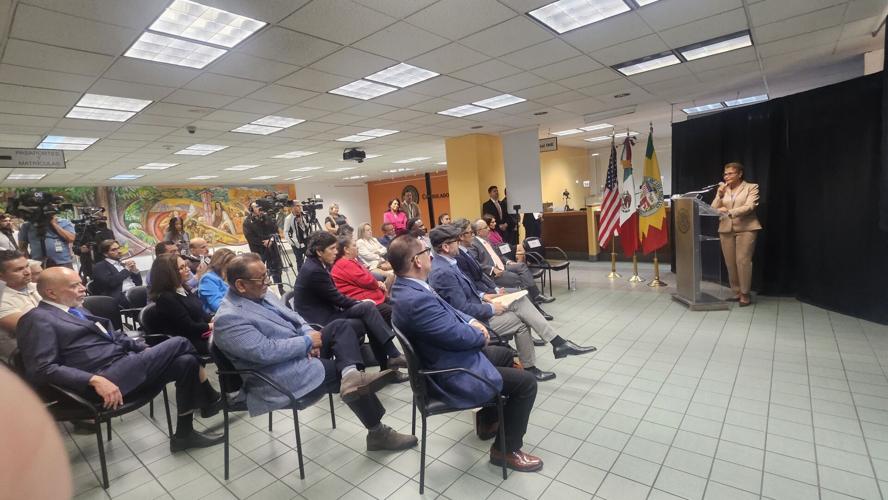
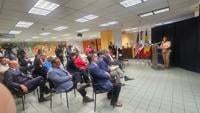
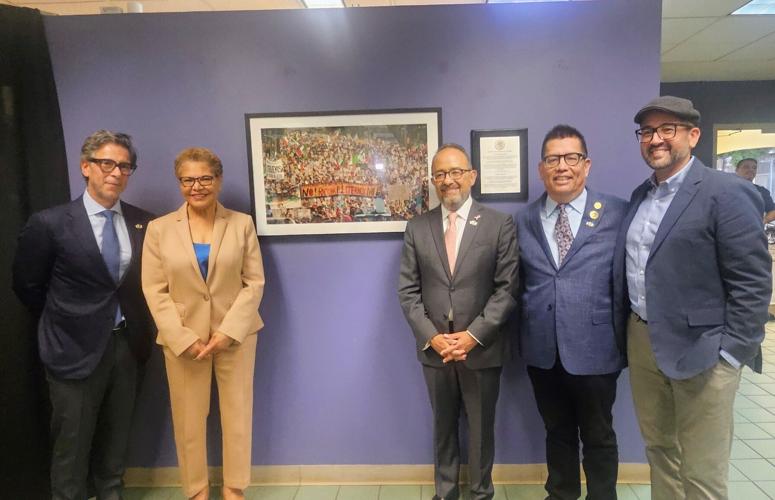

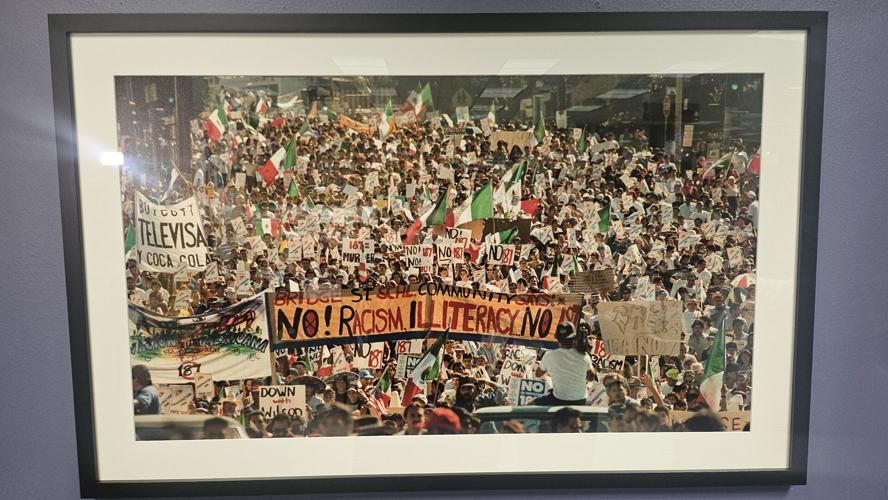
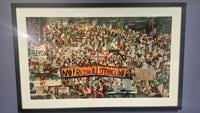
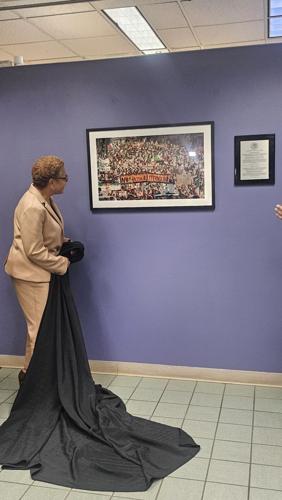




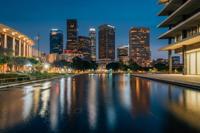



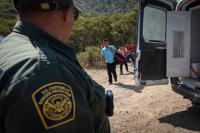
(0) comments
Welcome to the discussion.
Log In
Keep it Clean. Please avoid obscene, vulgar, lewd, racist or sexually-oriented language.
PLEASE TURN OFF YOUR CAPS LOCK.
Don't Threaten. Threats of harming another person will not be tolerated.
Be Truthful. Don't knowingly lie about anyone or anything.
Be Nice. No racism, sexism or any sort of -ism that is degrading to another person.
Be Proactive. Use the 'Report' link on each comment to let us know of abusive posts.
Share with Us. We'd love to hear eyewitness accounts, the history behind an article.